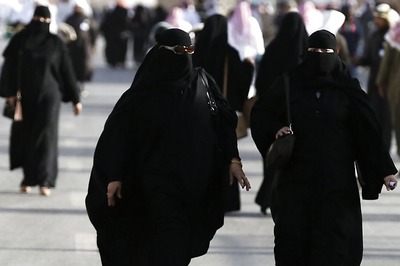
views
Delhi’s air quality was in the ‘very poor’ category on Sunday and deteriorated to the ‘severe category’ in some areas while the Punjab government announced an eight-point action plan to stop stubble burning amid growing public health concerns.
According to available data, the share of stubble burning in Delhi’s PM2.5 pollution rose to 26 per cent on Sunday, the highest this year and is likely to rise in the coming days. Delhi’s overall air quality index (AQI) stood at 367 at 9 am and it improved to 352 at 4 pm. The national capital registered its 24-hour average AQI at 397 on Saturday, the worst air quality reported since January.
The surge in pollution levels in Delhi came as Punjab reported 1,898 stubble-burning incidents on Saturday. The Indian Agricultural Research Institute (IARI) reported 1,761 farm fires in Punjab on Sunday.
Punjab’s 8-point Action Plan Against Stubble Burning
Punjab Chief Minister Bhagwant Mann on Sunday issued an eight-point action plan to tackle the issue of stubble burning that include CM-chaired review meetings, incentives and strict actions against farmers. The concrete steps are:
- So far, 1.20 lakh stubble handling machines have been distributed
- Dissemination of information about the phone numbers of village-level owners of CRM machines to the farmers
- Meeting with farmer organisations and Sarpanchs’ in sensitive areas by senior officers and MLAs of the department and appeal to Gurdwaras not to burn stubble
- With the help of the Health and Education departments, increase in the number of awareness campaigns
- Weekly review of proceedings of all districts under the chairmanship of Chief Minister
- Incentives to Panchayats and farmers who do not burn stubble
- Real-time information on incidents of stubble-burning for quick action
- Strict action against those found guilty of stubble-burning
After Diwali, the state has seen a jump in the number of stubble burning incidents. The Indian Agricultural Research Institute (IARI) reported 1,761 farm fires in Punjab on Sunday, 1,898 on Saturday and 2,067 on Thursday, the highest incidents so far this season.
The Commission for Air Quality Management had on Thursday said the increased incidents of stubble burning in Punjab this year “is a matter of serious concern”. According to satellite remote sensing data, up to October 24, only about 39 per cent of the sown area in Punjab had been harvested and thus the rising number of fire events was an alarming situation, it said.
Meanwhile, Bharti Kisan Union (Lakhowal) general secretary Harinder Singh Lakhowal on Saturday asked the government to pay Rs 100 per quintal or Rs 5,000 per acre to a farmer for stubble management. “We also do not want it to burn it as its smoke reaches our villages first. Therefore, we request the government to support us, otherwise farmers will be forced to burn crop residue,” Lakhowal told reporters in Jalandhar.
Paddy straw burning in Punjab and Haryana is one of the reasons behind the alarming spike in air pollution levels in the national capital in October and November.
Delhi Ramps Up Anti-pollution Measures
Delhi Environment Minister Gopal Rai said the city government has set up 586 teams to ensure strict implementation of the ban on construction and demolition activities as experts have warned of unfavourable wind speed and direction from November 1 and subsequent deterioration of air quality index to ‘severe’ category.
The Delhi fire service has also been instructed to sprinkle water in hotspot areas. So far, 13 fire tenders have been rushed for the same.
The Commission for Air Quality Management (CAQM) has directed the authorities in the NCR to implement curbs, including a ban on construction and demolition activities, under stage III of the Graded Response Action Plan, he said.
GRAP is a set of anti-air pollution measures activated in the capital and its vicinity according to the severity of the situation. It classifies the air quality in the Delhi-NCR under four different stages: Stage I – ‘Poor’ (AQI 201-300); Stage II – ‘Very Poor’ (AQI 301-400); Stage III – ‘Severe’ (AQI 401-450); and Stage IV – ‘Severe Plus’ (AQI >450).
Under stage III of GRAP, the authorities have been asked to enforce a strict ban on construction and demolition activities in the NCR, except for essential projects and non-polluting activities such as plumbing, carpentry, interior decoration and electrical works.
The ban on construction and demolition activities includes earthwork for excavation, boring and drilling; fabrication and welding operations; loading and unloading of construction material; transfer of raw material, including fly ash, either manually or through conveyor belts and vehicular movement on unpaved roads.
It also restricts the operation of batching plants; laying of sewer lines, waterline, drainage work and electric cabling through open trench system; cutting and fixing of tiles, stones and other flooring materials; grinding activities; piling work; water proofing work; road construction and repair works, including paving of sidewalks, pathways and central verges among others.
However, the restrictions will not be applicable on essential projects concerning national security, defence, railways and metro rail among others.
(With PTI inputs)
Read all the Latest India News here


















Comments
0 comment